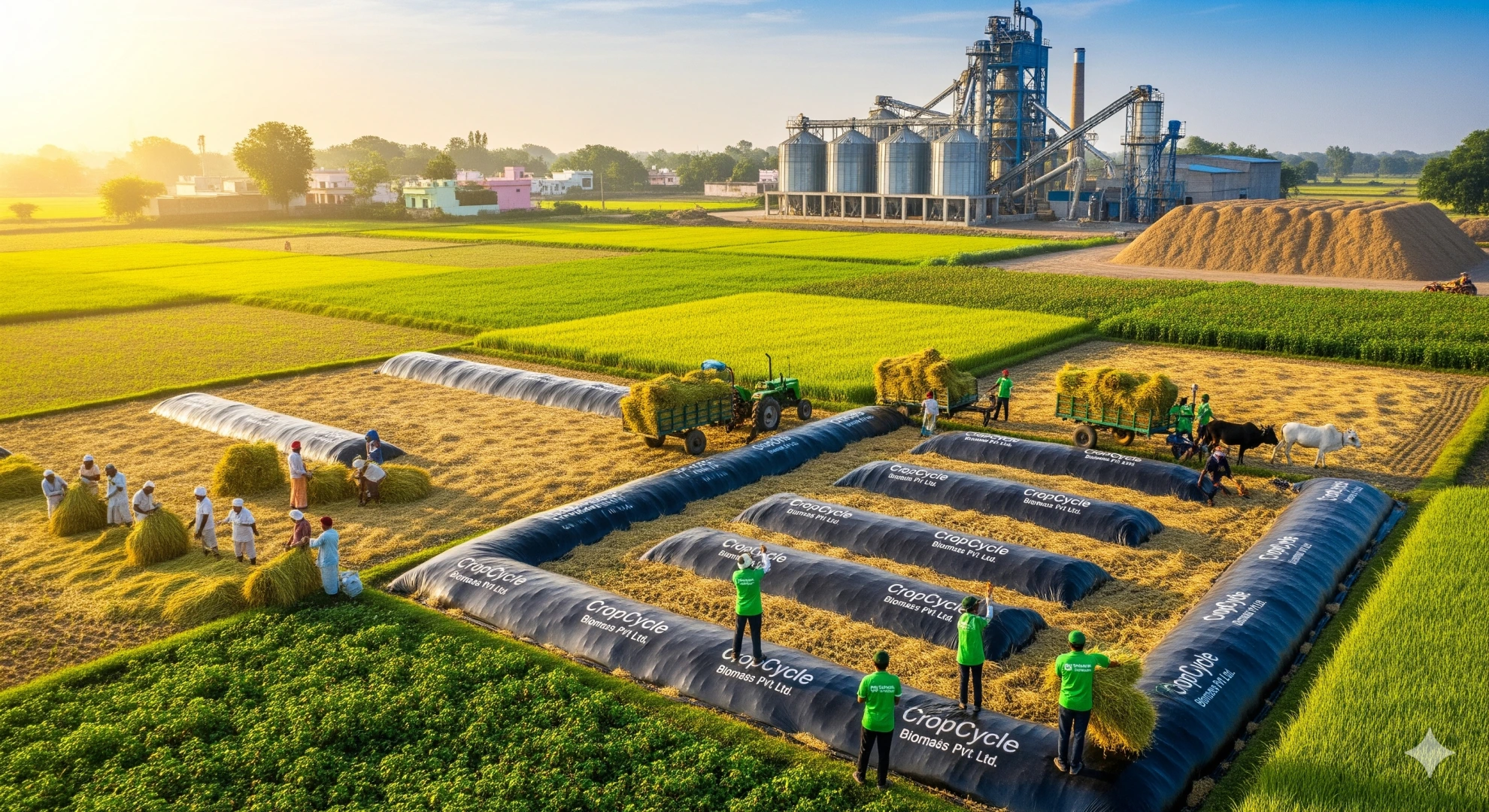Sustainability that Empowers Farmers, Fuels Industries, and Cleans the Air.
At Cropcycle Biomass Pvt. Ltd., sustainability is not just a goal—it is the foundation of our business. India annually produces between 500–683 million tonnes of crop residues, with over 230 million tonnes surplus that often remains unutilized. Unfortunately, a significant portion of this surplus is still burnt in the open, releasing harmful greenhouse gases, deteriorating air quality, and contributing to climate change. We see this challenge as an opportunity to create lasting impact.
By transforming agricultural residues such as rice straw, cotton stalks, and husks into high-quality biomass fuels, we provide industries with a clean, renewable alternative to coal and fossil fuels. This not only reduces carbon emissions but also plays a vital role in helping India achieve its renewable energy targets and global climate commitments.
Our sustainability approach is three-dimensional:
Environmental: Preventing stubble burning, reducing carbon footprint, and promoting circular use of farm residues.
Economic: Offering farmers a fair value for their residues, creating additional income streams, and generating rural employment through collection and supply operations.
Social: Improving air quality, protecting community health, and fostering awareness about sustainable agricultural practices.
Every tonne of crop residue we collect and convert represents cleaner air, stronger rural economies, and greener energy solutions. Through responsible practices and innovative supply chains, we ensure that sustainability is woven into every stage of our operations—from the fields where residues are collected to the industries where they are consumed.
At Cropcycle Biomass, we believe that true sustainability means balancing energy security, environmental responsibility, and farmer prosperity. By turning agricultural waste into renewable energy, we are building a future that is not only efficient and reliable but also inclusive and environmentally accountable.

